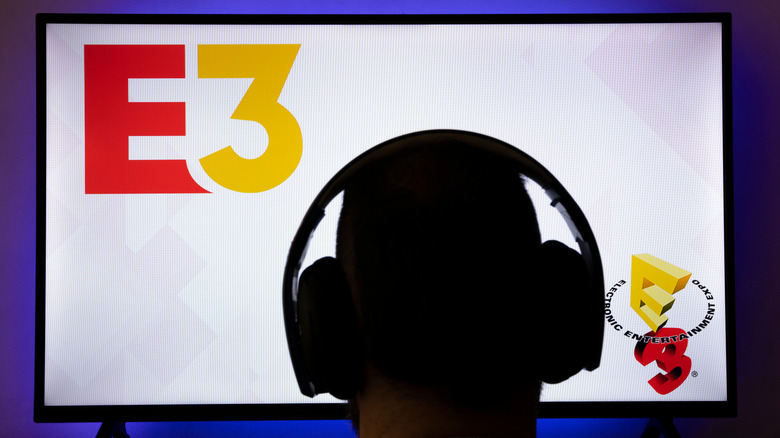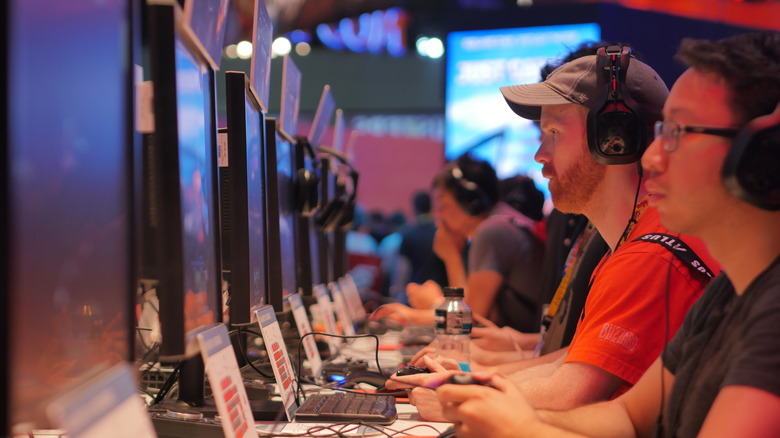End Of An Era: E3 Is Officially Dead
In a move that will undoubtedly disappoint gaming enthusiasts worldwide, E3, the landmark annual expo for the video game industry, has been canceled, this time around, for good. The Entertainment Software Association (ESA), the event's organizer, confirmed the development via Twitter on December 12, 2023. For those unaware, ESA has regularly hosted the event for well over 20 years, with the first-ever E3 expo dating back to 1995. E3 had a near-uninterrupted run until 2020 when that year's event had to be canceled on account of the COVID-19 pandemic.
While a digital-only version limped on in 2021, it lacked the energy and buzz that made E3 so special. Things only got worse in 2022 when the ESA was forced to cancel that year's event due to a resurgence in the number of cases. While the ESA had confirmed it had every intention to hold the expo between June 13 to 16, 2023, at the famed Los Angeles Convention Center, a general lack of interest from traditional E3 partners, including the likes of Sony and Nintendo, led to its eventual cancellation as well. Any hope for a future E3 Expo now lies in tatters after the ESA officially confirmed that they're pulling the plugs on the expo for good.
Commenting on the development, Stanley Pierre-Louis, president and CEO of the ESA, said:
"After more than two decades of hosting an event that has served as a central showcase for the U.S. and the global video game industry, we know it's difficult to say goodbye to such a beloved event, but it's the right thing to do given the new opportunities our industry has to reach fans and partners."
Another victim of the post Covid-era?
While COVID-19 may seem like the sole culprit behind E3's decline, most gaming enthusiasts and industry insiders view it as a mere catalyst for deeper changes already brewing. The pandemic amplified a growing aversion towards large-scale events. Still, the real blow came from the rise of digital distribution platforms and social media, which had already begun to erode E3's monopoly on industry news and announcements years prior.
Once major publishers like Sony and Microsoft realized the ease and cost-effectiveness of hosting its showcases, E3's relevance quickly diminished. These self-hosted events provided direct access to their target audiences, allowing for controlled messaging and avoiding the cacophony of a massive expo. This shift in strategy proved to be a game-changer, ultimately leading to E3's demise.
In the end, E3 became a victim of its own success. It had become so synonymous with the video game industry that it failed to adapt to the changing landscape. The pandemic merely served as the catalyst for its inevitable demise, exposing the vulnerabilities that had been building for years. While the possibility of a return looks bleak right now, there might be several gaming enthusiasts out there who'd be hoping for the good ole E3 to make an eventual comeback.

